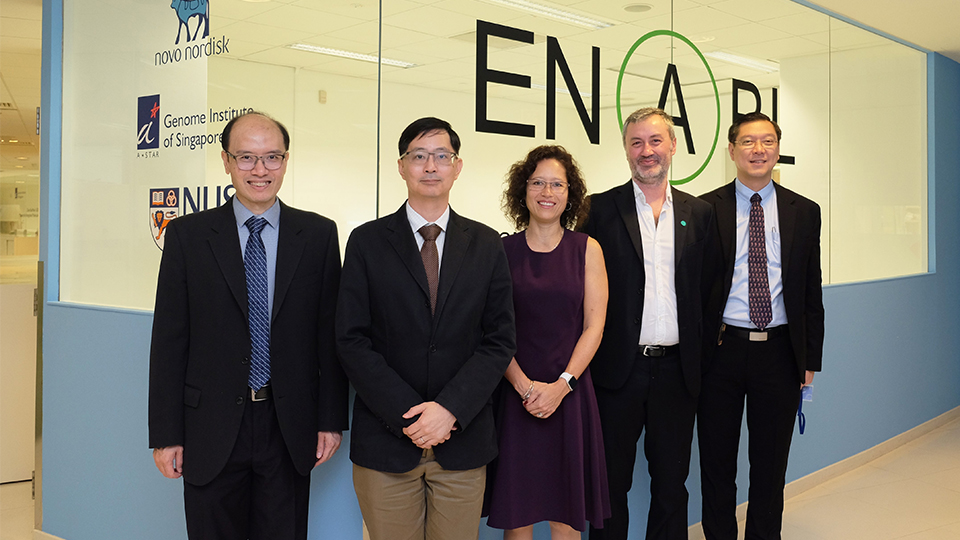GIS, NUS, and Novo Nordisk team up to study non-alcoholic fatty liver disease in Asian populations
Published: 10 Mar 2020

A*STAR’s Genome Institute of Singapore (GIS), and the NUS Yong Loo Lin School of Medicine have entered a strategic research collaboration with global healthcare company Novo Nordisk, to enhance the understanding of non-alcoholic fatty liver disease (NAFLD), and its more severe form, non-alcoholic steatohepatitis (NASH).
The study aims to discover new molecular hallmarks and biomarkers of the disease specific to Asian populations, which could lead to the development of effective treatment strategies.
NAFLD is one of the most common causes of liver disease. It is characterised by the building up of fat in the livers of people who consume little to no alcohol, and is often associated with obesity and type 2 diabetes. Over time, NAFLD can progress to a more severe form of the disease called NASH, in which liver scarring and inflammation sets in. NAFLD affects more than a quarter of the global adult population, and is estimated to affect up to one third of the adult Singapore population.
There are currently no approved therapies for treating NAFLD/NASH, and the first-in-line treatment recommendations are dietary and lifestyle changes, due to the disease’s close association with obesity. While Asian and Western NAFLDs share several characteristics, Asian NAFLD is characterised by a lower body mass index, younger age, increased complication rate and higher prevalence in lean individuals. Hence, there is a significant need for further research on Asian populations to develop effective diagnostics and therapies.
“Non-alcoholic fatty liver is increasing in incidence in Asia and very little is understood about the disease in our multi-ethnic population,” said Associate Professor Dan Yock Young, the Lead Principal Investigator of this research and Head of the Department of Medicine at NUS Medicine. “This grant and collaboration with our strategic partners offers us the opportunity to drill into the pathophysiology of the Asian phenotype and to develop better screening, diagnostic, predictive and effective therapies that can avert the complications of this disease for Asians.”
The research collaboration will contribute to the understanding of a Singaporean- and Asian-centric NAFLD as part of a national research platform named Ensemble of Multi-disciplinary Systems and Integrated Omics for NAFLD (EMULSION). As co-hosts of EMULSION, GIS and NUS Medicine will unite global industry and academic research efforts to build an Asian-centric NAFLD database.
Read more in the press release here.
News Coverage

